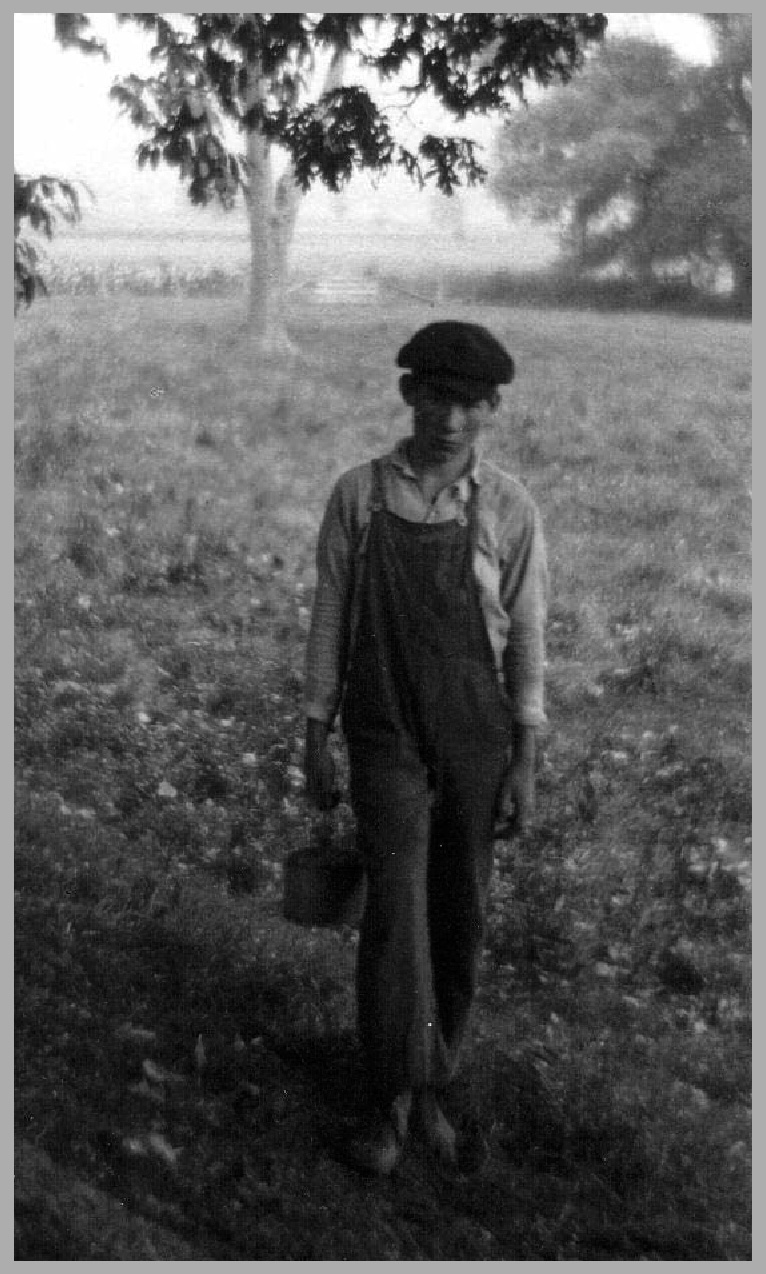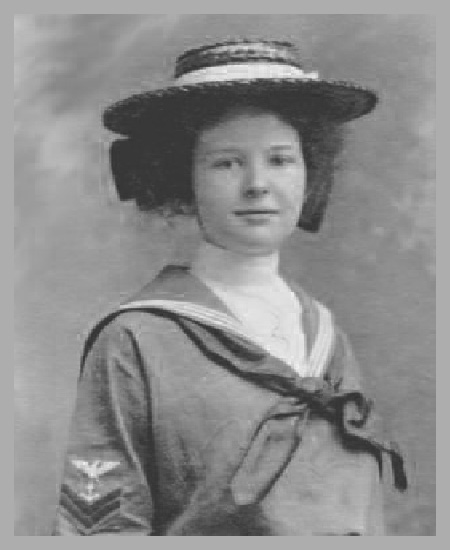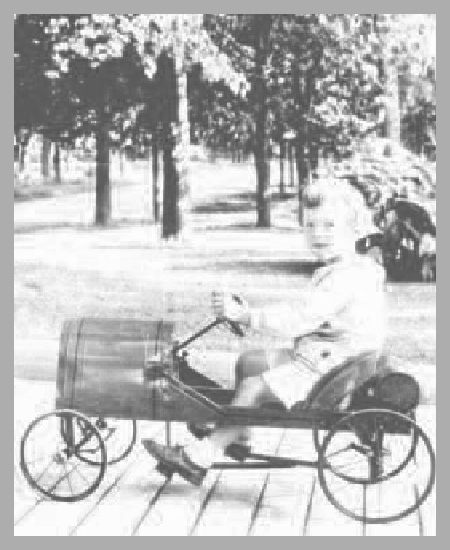The Silent Boy
Authors: Lois Lowry

 
Walter Lorraine Books
Copyright © 2003 by Lois Lowry
All rights reserved. For information about permission
to reproduce selections from this book, write to Permissions,
Houghton Mifflin Company, 215 Park Avenue South,
New York, New York 10003.
Library of Congress Cataloging-in-Publication Data
Lowry, Lois.
The silent boy / Lois Lowry.
p. cm.
Summary: Katy, the precocious ten-year-old daughter of the
town doctor, befriends a retarded boy.
ISBN 0-618-28231-9
[1. People with mental disabilitiesâFiction. 2. BabiesâFiction. 3.
Brothers and sistersâFiction. 4. Unmarried mothersâFiction.] I.
Title.
PZ7.L9673 To 2003
[Fic]âdc21
2002009072
Printed in the United States of America
QUM 10 9 8 7 6 5 4 3 2 1
Few things give me more pleasure than looking at photographs. To glimpse other lives, caught and captured in moments that live on long after the circumstances of the moment have passed, makes me shiver with imagination.
All of the people in these photographs are real people. Some of them were people I knew and loved. One is my own mother.
Others are strangers. But people who knew them have generously allowed me to use them to illustrate this story.
In particular I want to thank Betty Landis Carson, who sent me some photos from her own family collection; and Rex and Phyllis Reynolds Naylor, who did as well.
But there is no way to thank the people whose family photographs ended up in the New Hampshire antique store where I found them. I find myself wondering about those beautiful children, those wide-eyed young girls, those sturdy young menâall of them captured by a camera in the early part of the century when cameras were still a novelty. Someone must have treasured their pictures once. Someone knew their names and what their stories were.
Now I have turned them into fiction. I can only hope that they wouldn't mind.
Â
Lois Lowry
Cambridge, Massachusetts
March 2002


I am a very old woman now. My great-grandchildrenâwho call me Docky, a name my youngest patients gave me years agoâask me to tell them stories, and I make up tales about talking pigs with pink hair ribbons on their curly tails, or monkeys who wear vests and carry canes. I am as good at foolishness as I once was in the operating room.
If I tried to tell them this story, the one I am about to set down here, their parents would send me warning looks over the heads of the children.
Don't,
the looks would say.
Stop.
Meaning, too depressing. Too complicated. Too long ago.
So when they come to meâyoung Austin, named for his great-grandfather; the twins, Sam and Zoe; merry-eyed Lily, adopted from China; and solemn Katharine, who has my name but insists on it whole, never Katy, as I once was, or Kate, as I am nowâwhen they come and ask me to tell them stories, I never tell them this one.
It is not really a story for children, though it is about a child.
But someday one of them will point from a car window toward a huge stone building with boarded windows set in an empty, unlandscaped field at the west side of town and ask, "What's that?" Perhaps they will see, through untrimmed ivy on the stone wall surrounding the field, the carved word in the post to which an iron gate, long gone, was once attached. ASYLUM. A strange word, and a great-grandchild will likely mispronounce it at first, as I remember I did when I was learning to read.
"What's that?What was it for?"
I will write it down here, and this is what they will read, as an answer.
Â
But where to begin?
I will begin with myself. Katy Thatcher. Here I am, thirteen, wearing a sailor dress in this old photograph, looking solemn (but proud, too; the dress was a new one, and I felt grown up). I
was,
I think, a solemn girl: Henry and Caroline Thatcher's oldest child, and for eight years their only.
Our house on Orchard Street was large, and to the side of the big shingled house, its entrance approached from a pebbled walk through the yard (the walk was between oak trees, and Levi, the stable boy who tended the horses and did odd jobs, spent many days in fall raking it bare), was my father's office. A small sign at the side gate read Henry Thatcher, M.D. From my bedroom window above the porch roof, I could see patients unlatch the gate and make their way to that door, bringing their babies, their arthritis, their small aches and larger sufferings, to my father.
By thirteen I already knew that I wanted to be a doctor, too. I read accounts in the news of the war that was raging in Europe, and I could not wrap my mind around the reasons for it or the terrible logistics of battles far away. I listened to my parents talking to their friends, our next-door neighbors, Mr. and Mrs. Bishop, as they fretted over their oldest boy, Paul, who was just finishing Princeton then and should have been looking ahead to law school and to joining his
father's firm one day. But Paul was already yearning to enlist in a war that had not yet, in 1915, begun to take American boys.
But at thirteen, when I read the war news, I thought only of the wounded and how if I were a doctor I could set their bones and heal their burns. I had watched my father do so many times.
I was not yet four when San Francisco toppled in an earthquake and burned. Even so young, I heard talk of it.
At eight, I had heard of the terrible fire in New York, of the factory girls, scores of them, leaping from the windows, their clothes aflame, and dying, burned and mangled, on the sidewalk while people watched in horror. My mother had said "Shhh" to Father when she saw me listening, but he, seeing that my interest was real and not just a child's curiosity, spoke to me of it later. Though I was still a child, we talked of the ways in which death comes, and how perhaps, not always, but sometimes, a doctor could push death away, could hold it back, or at the very least make it come easily.
By thirteen, by the time I had the sailor dress of which I was so proud, many of those moments were past. San Francisco had been rebuilt. The Triangle Shirtwaist Company fire had brought about new laws to protect factory workers.
And on the edge of town, when I was thirteen, stood the stone building called the Asylum. It still
stands there today, though newspaper editorials call it the Eyesore in an attempt at wit, and there is talk of tearing it down to make room for a housing development. Its windows are boarded over now, and the grounds are littered with debris. Sometimes, in my growing-up years, when Austin was my beau, we would walk out that way, holding hands. Sometimes I found myself glancing at the ground, wondering if I would spot the gleam and flicker of a cat's-eye marble dropped by a boy. I wondered, then, as I still do, about the boy who had once given me a kitten and changed my life forever. His name was Jacob Stoltz.
His is the story I mean to write down now.

My friend Austin Bishop lived next door and was to be invited to my sixth birthday party the next month. Austin was already six and said that he could read. I thought it was true because he showed me a book with a story in it and told me the storyâit was about a mouseâand then he told me the story again, and the words were exactly the same. Reading, I knew, was what made the words always, always be the same.
Jessie Wood was to come to my party, too, and had told me a secret, that she was bringing me a tea set with pink flowers as a birthday present.
She had promised her mother that she would not tell. A promise was a very important, very grownup thing, and if I promised not to tell something, I would never ever tell. But Jessie was often naughty. She disobeyed. She told me that the pink flowers were roses and the tea set was real china.
Austin's brother, Paul, was not invited because he was too big. Paul was almost fifteen years old and had his own desk, many pencils, and a book with maps. He had a pocketknife that was very sharp and we were not to touch it, ever. He tried to smoke his father's pipe but he was too young, and it made him sick. We saw him being sick out by the barn. It was yellow and splattered on his shoes.
Austin's father was named Mr. Bishop, and he was a lawyer, but at home he spent a lot of time out in the barn, pounding and sawing. He liked tools and steam engines and wheels and anything that moved its parts and made noise. Sometimes he said he wished he could be a train engineer. During the summer, when Austin's birthday was coming, Mr. Bishop and Paul worked many days out in the barn. It was a secret. No one could peek. They made a lot of noise, and it was a surprise for Austin's birthday.
My mother said, when she saw what they had made, that it was a mazing. I had never seen a mazing before. It had wheels, but it was not a velocipede.
Everyone
had a velocipede, even me.
I was allowed to ride mine to the mailbox, but then I was always to turn around and come back.
Austin could sit in his mazing. He pushed with his feet on the pedals and he traveled down the walk. I supposed he could go to town in the mazing if he wished. Perhaps he could go to his father's office. Or to the library, or Whittaker's Dry Goods! A mazing could go anywhere.
